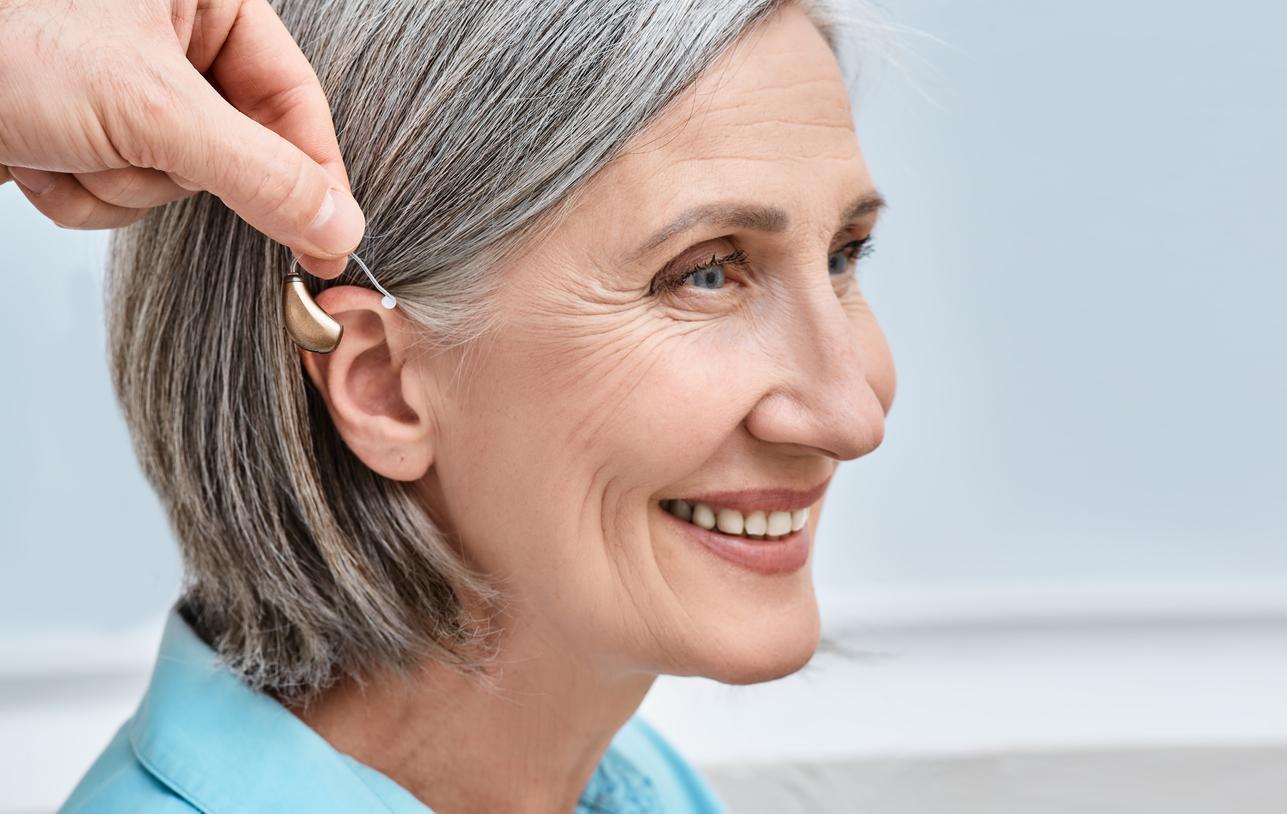Wearing hearing aids can significantly reduce the risk of mortality.

- Wearing hearing aids regularly reduces the risk of mortality by 24% among deaf people.
- To explain these results, the research director hypothesizes that the improvements in mental health and cognition that result from better hearing may promote better general health, which can improve lifespan.
- 51,452 behind-the-ear hearing aids, 31,436 in-ear and 354,046 remote headphones were sold in France last year.
Wearing hearing aids can significantly reduce the risk of mortality, according to a new study.
Hearing aids reduce mortality risk by 24%
“We found that adults with hearing loss who regularly used hearing aids had a 24% lower risk of mortality than those who never wore them.”summarizes Janet Choi, otolaryngologist at Keck Medicine and director of the study.
To reach this conclusion, Choi and his fellow researchers used data compiled by the National Health and Nutrition Examination Survey to identify nearly 10,000 adults ages 20 and older who had completed audiometric assessments.
A total of 1,863 adults were identified as having hearing loss and included in the study. Among them, 237 were “regular users” hearing aids, that is, they reported wearing them at least once a week, and 1,483 were identified as having never used these devices. Subjects who reported wearing the devices less than once a month or less frequently were classified as “non-regular users”.
The researchers found that the nearly 24% difference in mortality risk between regular hearing aid users and never users remained stable, regardless of variables such as degree of hearing loss (mild to severe), age, ethnicity, income, education level and medical history.
Furthermore, there was no difference in mortality risk between non-regular users and people who had never used hearing aids, indicating that occasional use of hearing aids does not prolong the duration of life.
To reduce the risk of mortality, we must encourage hearing aids
To explain these results, the research director hypothesizes that the improvements in mental health and cognition that result from better hearing may promote better general health, which can improve lifespan.
Janet Choi hopes this study will encourage more people to wear hearing aids, although she acknowledges that factors such as cost, stigma and difficulty finding devices that fit and work well are barriers to wearing them. .
According to Snitem data, 436,934 hearing aids found buyers in the first quarter of 2023, compared to 467,000 a year earlier. In total, 51,452 behind-the-ear hearing aids, 31,436 in-ear and 354,046 remote headphones were sold in France last year.















